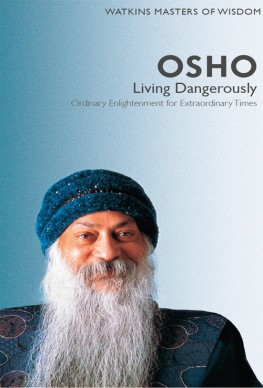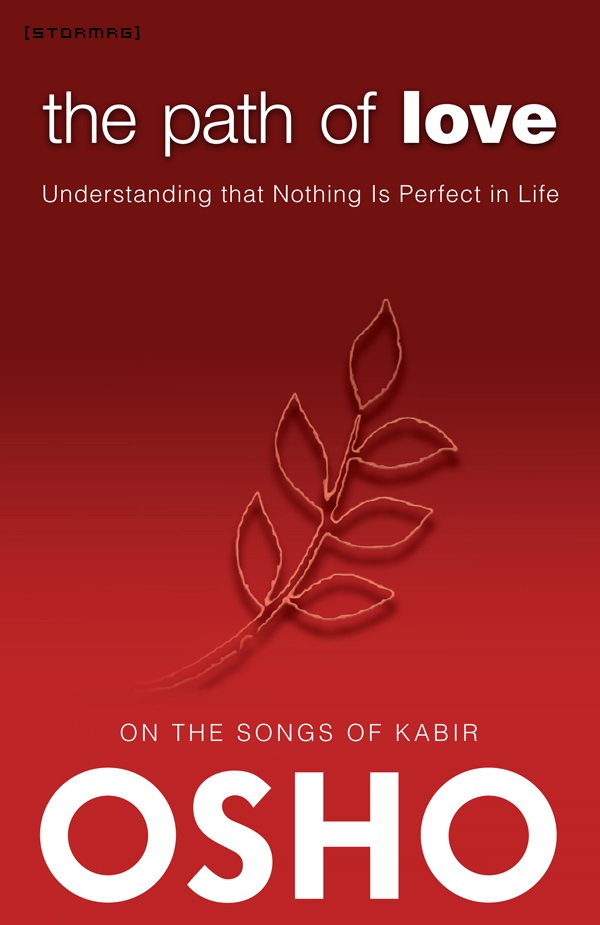All rights reserved. No part of this book may be reproduced or transmitted in any form or by any means, electronic or mechanical, including photocopying, recording, or by any information storage and retrieval system, without prior written permission from the publisher.
This book is a series of original talks by Osho, given to a live audience. All of Oshos talks have been published in full as books, and are also available as original audio recordings. Audio recordings and the complete text archive can be found via the online OSHO Library at
Chapter 1 Love Is the Master Key
He is dear to me indeed who can call back the wanderer to his home. In the home is the true union; in the home is enjoyment of life. Why should I forsake my home and wander in the forest? If Brahma helps me to realize truth, verily I will find both bondage and deliverance in the home.
He is dear to me indeed who has power to dive deep into God, whose mind loses itself with ease in his contemplation.
He is dear to me who knows God, and can dwell on his supreme truth in meditation; and who can play the melody of the infinite by uniting love and renunciation in life.
Kabir says: The home is the abiding place; in the home is reality, the home helps to attain him who is real. So stay where you are, and all things shall come to you in time.
O Sadhu! The simple union is the best. Since the day when I met with my Lord, there has been no end to the sport of our love. I shut not my eyes, I close not my ears, I do not mortify my body; I see with eyes open and smile, and behold his beauty everywhere. I utter his name, and whatever I see, it reminds me of him; whatever I do, it becomes his worship.
The rising and setting are one to me; all contradictions are solved. Wherever I go I move round him. All I achieve is his service: When I lie down, I lie prostrate at his feet. He is the only adorable one to me; I have none other.
My tongue has left off impure words, it sings his glory day and night: whether I rise or sit down, I can never forget him, for the rhythm of his music beats in my ears.
Kabir says: My heart is frenzied, and I disclose in my soul what is hidden. I am immersed in that one great bliss which transcends all pleasure and pain.
Religion has very rarely existed in a healthy way only when a Buddha walks on the earth, or a Christ or a Krishna or a Kabir. Otherwise, religion has existed as pathology, as illness, as neurosis. One who has realized religion through his own being has a totally different understanding of it; the understanding of one who has been imitating others is not understanding at all. Truth cannot be imitated. You cannot become true by becoming a carbon copy. Truth is original, and to attain to it you have to be original too.
Truth is not attained by following somebody; truth is attained by understanding your life. Truth is not in any creed, in any argument; truth is hidden as love in the deepest core of your being. Truth is not logic; it is not a syllogism, it is an explosion of love. And whenever truth explodes in you, you attain to a totally different vision of life, of godliness, of religion. Your eyes have a different quality, a different transparency, clarity. When your mind is clouded with thoughts borrowed from others, whatsoever you call religion is not religion, it is just dreaming.
And the basic difference makes an imitative person pathological. A Christian is pathological, a Hindu too. Krishna is healthy, superbly healthy, so is Christ. When Christ says something, he has known it. He is not repeating somebody else, he is not a parrot. It is his own realization, and that makes the whole difference.
When you become a Christian you repeat Christ. By and by, you become more like a shadow. You lose your being. You lose yourself. You are no longer true, real, authentic. A Christian is already dead, and religion is concerned with rebirth. Yes, it is a crucifixion too: the old has to die for the new to be born.
But following a dead creed, a dogma, a church, you never allow the old to die and you never allow the new to be born. You never take the risk. You never move in danger. When Christ goes to face his own being, he is moving dangerously, he is taking a great risk; he is going into the unknown.
Just the other night I initiated a young man into sannyas and I told him to seek the unknown. He asked, But why? And how? How can I seek the unknown? That which I dont know, how can I seek it?
We only seek the known. But if you only seek the known you will never know God because you dont know God. If you seek the known you will move in a circle, in a rut. You will become mechanical. Seek the unknown, because through seeking the unknown you move out of the rut, out of the repetitive, mechanical way of life. He is right; he asks, How to seek the unknown?
Drop the known, dont cling to the known, and wait for the unknown. If you dont cling to the known, if you put the known aside, the unknown comes on its own accord. The unknown is just waiting at the door, but you are so full of the known that there is no space left for the unknown to come in. The unknown would like to become a guest, but the host is interested only in the known. The host is much too occupied with the known; the host is not free even to look at the unknown.
Yes, I can understand his question: How to seek the unknown? Whatsoever you seek will be the known. Mind cannot seek the unknown, so mind is the barrier for the unknown. Mind can only seek the known again and again and again. Mind is repetitive.
Thats what meditation is all about: the way, the art of dropping the mind at least for a few moments so you can look at the unknown, not knowing where you are going. But those are the most beautiful moments when you dont know where you are going, when you dont know who you are, when you dont know the direction, the goal; when knowledge exists not.
When knowledge exists not, there is love. Knowledge is against love. Knowledgeable people cannot love, and people who can love are never knowledgeable. Love makes you wise, but never knowledgeable. Knowledge makes you cunning and clever, but never loving.
The known is the mind, the unknown is God. And Jesus says, God is love. Love comes through the unknown, with the unknown, as part of the unknown. To move into the unknown, one needs courage, tremendous courage. To cling to the known there is no need to have any courage any coward can do it, cowards only do that.
When you become a Christian you are a coward; when you become a Mohammedan you are a coward; when you become a Hindu you are a coward. When you become religious you are tremendously courageous you are going for an adventure, you are seeking the unknown, you are moving into the uncharted, the unmeasured and the immeasurable. There is every danger you may be lost, there is every danger you may not be able to come back; there is every danger that you will lose all control: you may go mad. Thats the price one has to pay for real religion.

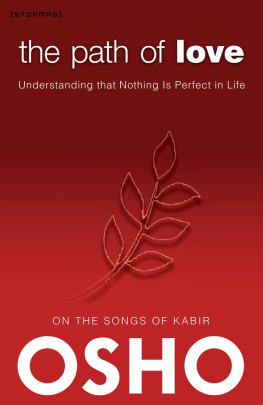
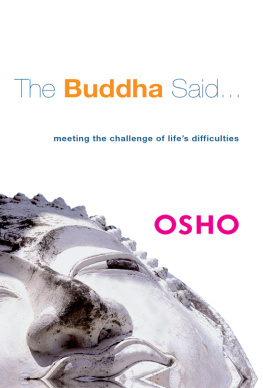
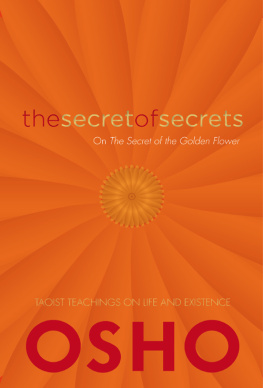
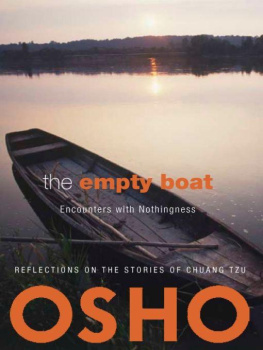


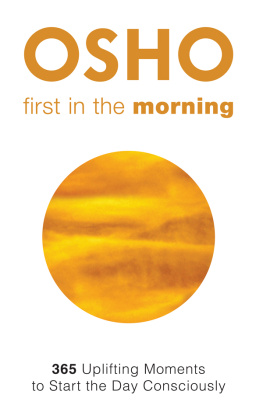

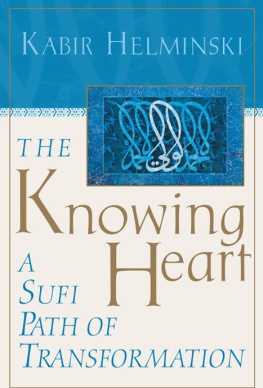

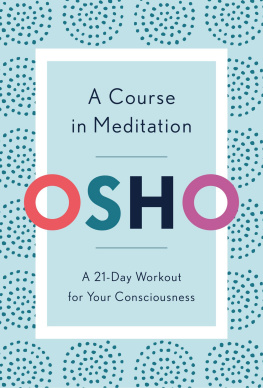
![Osho [Osho] - The Art of Dying](/uploads/posts/book/114253/thumbs/osho-osho-the-art-of-dying.jpg)
